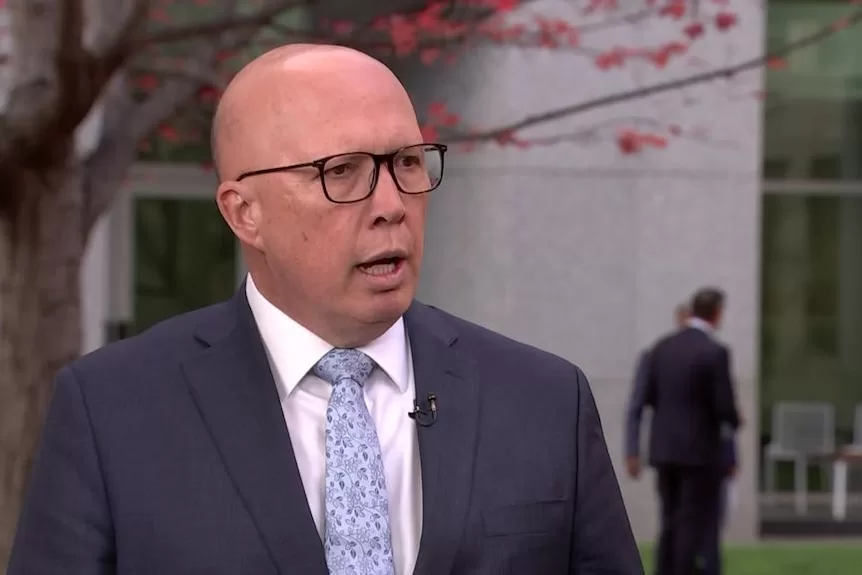- In short: The resources sector has welcomed $7 billion in tax credits for critical minerals projects.
- The proposed tax breaks were dubbed “billions for billionaires” by Opposition treasury spokesperson Angus Taylor.
- What’s next? The tax changes need to be legislated and are due to come into effect from July 2027.
Proposed tax breaks designed to encourage the next boom in critical minerals have been rejected by the Coalition as “billions for billionaires”, sparking a war of words between Opposition leader Peter Dutton and Western Australia’s premier.
The federal government’s $7-billion plan to provide a 10 per cent tax credit over the next decade to companies undertaking downstream processing was announced in Tuesday’s budget.
It hoped the incentives, which were part of the government’s $22.7 billion Future Made in Australia package that includes green hydrogen, would see the emergence of new projects across the country.
Federal Opposition Leader Peter Dutton said critical minerals projects should be able to stand on their own.
“We don’t support it,” he told ABC News Breakfast.
“The Prime Minister is giving billions and billions of dollars to billionaires and we’ve got families living in tents and cars.
“I just think people like Clive Palmer, [Andrew] Twiggy Forrest and others are great business people, they know how to milk a pretty weak government, and I think that’s what they’re doing at the moment.
The soundbite, “billions for billionaires”, belongs to Opposition treasury spokesperson Angus Taylor, but Mr Dutton made the party’s position clear.
“We support them [critical minerals projects], but not with taxpayers’ money, splashing billions of dollars at a time when the government has created an economic crisis for families and a housing crisis for millions of Australians,” he said.
Criticism is ‘anti-Western Australian’
WA Premier Roger Cook described the Coalition’s criticism as “anti-Western Australian”.
“It’s about creating jobs … it’s about continuing to make sure that we make stuff in Australia,” he said.
“Quite frankly, it’s anti-Western Australian, and the Liberal Opposition have to now explain why they are opposing the key feature of this budget, which will benefit WA.”
WA’s Mines Minister David Michael said it showed the Coalition was out of touch with the state.
“The federal Liberal Opposition does not get WA, the federal Liberal Opposition doesn’t get our mining sector, and I’d call on them to reassess their position and to provide certainty to those many producers and proponents who are looking to produce here in Western Australia,” he said.
WA Liberal Leader Libby Mettam said the state party would support the measure.
“It’s something that I will raise with my federal colleagues,” she said.
“We are committed to job and industry and new industry in Western Australia and that is my position.”
WA federal Liberal MP Rick Wilson also broke party ranks in support of the scheme.
There are 31 metals listed on the federal government’s critical minerals list, but nickel was only added in February following mine closures and mass job cuts in WA.
Mr Wilson’s motivation for supporting the government’s plan is clear as thousands of jobs are on the line in his O’Connor electorate, where mining giant BHP is weighing up the future of its loss-making Nickel West division.
Nickel West includes the Kalgoorlie Nickel Smelter, which has been operating since 1973.
“It won’t come in until 2027, so I’m not sure that it’s going to come in time for our nickel producers and, of course, you’ve actually got to be making a profit to be able to utilise the tax credit,” Mr Wilson said.
“Good on the government for taking some action to keep those nickel producers going in the face of competition from cheaper nickel out of Indonesia.”
Legislation won’t be rushed
Speaking on ABC Perth on Wednesday, federal Resources Minister Madeleine King described the tax incentives as “the most significant investment in the resources sector of any Commonwealth government”.
She said new legislation for the tax credits would not be rushed to prop up WA’s embattled nickel sector, which was hit again last month with the closure of the Ravensthorpe nickel mine.
“We need to make sure this is done right,” Ms King said.
“I know that might be difficult for nickel right now, but there are a lot of companies mining right now that aren’t processing yet, and this will drive investment into the processing side of things.
“You can’t flick a switch on this stuff overnight, as much as we might want to.
“We are sending a signal right now to investors right around the world to make sure they know Australia, and particularly Western Australia, is the perfect place to invest if they want to invest in critical minerals and a green energy future.”
Miners welcome new incentives
Two Perth-based companies that are developing WA nickel mines, both of which have earned major project status from the federal government, believe the tax incentives may be transformative for the sector.
Andrew Penkethman is from Perth-based Ardea Resources, which is developing the $3 billion Kalgoorlie Nickel Project, and says the tax incentives will make Australia more cost competitive.
Mr Penkethman was in Sydney on Wednesday spruiking his company’s joint venture deal with a Japanese consortium to spend $98 million on a feasibility study that would take the project to the brink of a final investment decision.
He said the benefits to the national economy through job creation, wages and state royalties, far exceeded the cost of the tax credit.
“It will be of significant benefit and will help make the Australian critical minerals sector more cost competitive with our international peers,” Mr Penkethman said.
Paul Kopejtka, from Alliance Nickel, which was developing the $1.2 billion NiWest nickel-cobalt project near Leonora, said the incentives would attract overseas investors.
“It’s an absolute shot in the arm because this will boost investment. There’s no doubt,” he said.
“It doesn’t really help the current nickel operations in WA, but I think what the federal government are targeting are those future critical minerals projects.”
